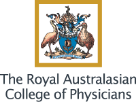What is Parkinson-Plus Syndrome?
Parkinson-Plus Syndrome, also known as Atypical Parkinsonism or Parkinsonism Plus, is an umbrella term for a group of neurological disorders that share some symptoms with Parkinson's disease but have additional features that differentiate them. These conditions are characterized by progressive degeneration of specific brain regions, leading to movement disorders and other neurological symptoms.
Types of Parkinson-Plus Syndrome:
There are several types of Parkinson-Plus Syndrome, including:
Multiple System Atrophy (MSA): MSA is a rare and progressive disorder that affects multiple systems in the brain, resulting in symptoms similar to Parkinson's disease along with autonomic dysfunction (problems with blood pressure, heart rate, bladder and bowel control, etc.) and cerebellar ataxia (coordination difficulties).
Progressive Supranuclear Palsy (PSP): PSP is a rare and degenerative disorder that affects movement, balance, speech, and eye movements. It is caused by the deterioration of certain brain cells, leading to a progressive decline in motor and cognitive function.
Corticobasal Degeneration (CBD): CBD is a rare condition characterized by the degeneration of specific areas in the brain, leading to often unilateral movement problems, cognitive changes, and other neurological symptoms. There is often poor response to Levodopa therapy
Lewy Body Dementia (LBD): LBD is a progressive condition that shares some symptoms with Parkinson's disease, such as tremors and rigid muscles. It is also associated with cognitive decline and visual hallucinations due to the presence of abnormal protein deposits in the brain known as Lewy bodies.
Symptoms:
Common symptoms of Parkinson-Plus Syndrome may include:
- Bradykinesia (slowness of movement)
- Rigidity (stiffness of muscles)
- Postural instability (problems with balance and coordination)
- Tremors (shaking)
- Autonomic dysfunction (such as orthostatic hypotension and urinary problems)
- Speech difficulties
- Cognitive changes
- Visual disturbances (in some types)
Diagnosis:
Diagnosing Parkinson-Plus Syndrome can be challenging due to its similarity to Parkinson's disease. Your doctor will likely perform a thorough neurological examination, review your medical history, and order various tests, such as MRI or CT scans, to rule out other conditions.
Treatment:
While there is no cure for Parkinson-Plus Syndrome, various treatment options can help manage symptoms and improve quality of life:
Medications: Certain drugs used for Parkinson's disease, such as levodopa, may help alleviate some symptoms, but their effectiveness can vary.
Physical therapy: Exercises and physical therapy can improve mobility, balance, and muscle strength.
Speech therapy: Speech therapy can assist with speech and swallowing difficulties.
Occupational therapy: Occupational therapy can help maintain independence in daily activities.
Supportive care: Managing symptoms related to autonomic dysfunction, sleep disturbances, and mental health issues is essential for overall well-being.
Prognosis:
The prognosis for Parkinson-Plus Syndrome varies depending on the specific type and the individual's response to treatment. Generally, it is a progressive condition, and symptoms tend to worsen over time.
Living with Parkinson-Plus Syndrome:
Living with Parkinson-Plus Syndrome can be challenging, but there are ways to enhance your quality of life:
- Follow your healthcare provider's advice and treatment plan diligently.
- Engage in regular exercise to maintain mobility and improve muscle strength
- Maintain a balanced diet and stay hydrated.
- Seek emotional support from family, friends, or support groups.
- Make your living environment safe and accessible.
Regularly monitor and manage any symptoms related to autonomic dysfunction.
Conclusion:
Parkinson-Plus Syndrome is a complex group of neurological disorders that require ongoing management and support. We are here to assist you throughout your journey with this condition. If you have any questions or concerns, please do not hesitate to reach out to us.
Remember, you are not alone in this, and we are committed to helping you achieve the best possible quality of life.







